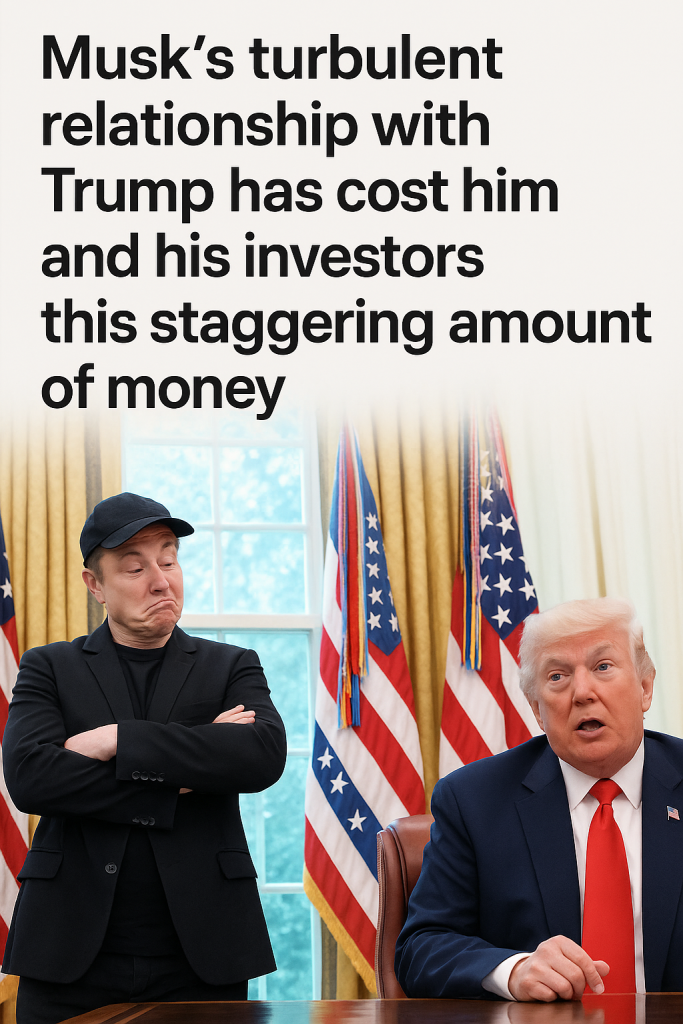Elon Musk’s often unpredictable rapport with former President Donald Trump has recently translated into significant financial fallout, costing Musk and his investors a staggering amount of money in 2024. As Musk navigates the complex interplay between politics and technology, his association and public disagreements with Trump have ripple effects reaching far beyond social media squabbles, hitting his companies’ valuations and investor confidence hard.
Over the past year, Musk has publicly expressed both support and criticism of Trump in fluctuating tones, creating uncertainty in the eyes of shareholders and market watchers. This turbulent dynamic emerged most forcefully as Musk took controversial actions linked—directly or indirectly—to Trump’s political influence, including Musk’s stance on regulatory policies and social media governance following his acquisition of Twitter.
Financial analysts tracking market trends observed that Musk’s companies, especially Tesla and SpaceX, have experienced increased volatility correlating with the peaks of Musk-Trump friction. Tesla shares, for example, have seen at least a 20% drop from their highs earlier in 2024, a decline partially attributed to investor concerns about Musk’s alignment with Trump-influenced policies and controversial statements.
Beyond Tesla’s stock fluctuations, Musk’s $44 billion purchase of Twitter has come under intense scrutiny, tied largely to Musk’s entanglement with political narratives linked to Trump’s social media presence. Since Musk’s takeover, Twitter’s ad revenue has plummeted, reportedly by over 50%, as major advertisers distanced themselves amid perceived political controversies. This dramatic loss has directly eroded shareholder value and investor trust.
Investment firms with significant stakes in Musk’s ventures have reportedly registered billions in paper losses, citing the combination of Musk’s public image issues tied to Trump and the operational challenges faced especially in social media and electric vehicle sectors. Experts indicate that Musk’s erratic public relations strategy, which frequently involves politically charged tweets and statements, has contributed to a ‘risk premium’ being applied to his companies, making investors wary and less inclined to hold long-term positions.
The broader market has also been affected. Musk’s interactions with Trump have stirred debates about the intersection of politics and business leadership, raising questions about how closely tech moguls should intertwine with divisive political figures. Given Musk’s high-profile stature, his mixed signals regarding Trump policies have led some institutional investors to reassess their exposure, precipitating portfolio adjustments away from Musk’s enterprises.
While Musk has defended his actions as attempts to innovate free speech and business practices, critics argue that the repeated back-and-forth with Trump has distracted him from core business priorities and alienated key stakeholders. One anonymous investor noted, “Elon’s polarization around Trump has made what should be strategic tech ventures into minefields of political risk.”
Looking ahead, the financial impact of the Musk-Trump relationship remains a cautionary tale about how corporate leadership and political entanglements can have profound monetary consequences. Market watchers emphasize that unless Musk manages to distance his business operations from the volatility of political affiliations, the long-term costs—in terms of market capitalization and investor confidence—could continue to mount.
In a volatile 2024 political and economic climate, Musk’s navigation of his public persona and relationships, especially with figures like Trump, will be crucial to stabilizing his companies’ financial prospects and regaining investor trust.



